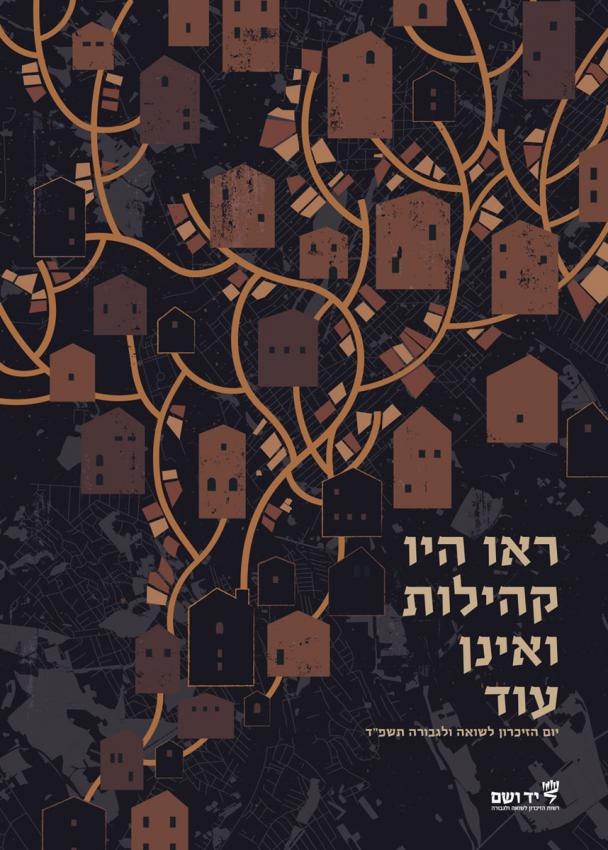26 March 2024
Today, Yad Vashem Chairman Dani Dayan presented the award for the winning design of the annual "Shaping Memory" Competition for Holocaust Martyrs' and Heroes' Remembrance Day 2024 to Ira Ginzburg. The annual "Shaping Memory" competition, now in its fourteenth year, invites contemporary Israeli designers to express their connection to the Holocaust's complexities and diverse layers through a visual prism.
The central theme of this year's Holocaust Martyrs' and Heroes' Remembrance Day, is "A Lost World: The Destruction of the Jewish Communities." Nearly 85 years since the outbreak of World War II, the once thriving Jewish communities that existed are at the heart of how we commemorate the Holocaust and is the inspiration behind the design of the winning poster created by Ira Ginzburg.
Yad Vashem Chairman Dayan remarks:
"Yad Vashem's commitment to Holocaust remembrance is not just about preserving history; it's about shaping memory. Through a unique multidisciplinary approach that integrates design and art, we recognize that memory is strengthened through visual associations. Our annual Shaping Memory poster contest is more than just a competition; it's an opportunity to bridge the gaps between history and present-day life. By harnessing the power of visual storytelling, we honor the past by encouraging new audiences today not only to remember, but also to learn about it."
The design of this year's winning poster depicts a map of a town, symbolizing a typical Jewish community. However, in art there are often multiple layers to each creation. Ira's design is no different. Her poster's image also mimics a tree of life that ascends limitlessly, evoking the nostalgic memory of the Jewish family and the decimation of Jewish life in Europe and North Africa.
Ira Ginzburg's family has its own Holocaust story. Frieda Teitelman, Ira's grandmother, lost many family members in the forests of Ukraine during the Holocaust, but was fortunate enough to survive and go on to build a family from the destruction.
Ginzburg remarked:
"My grandmother's story is a tale of life and continuity, and there is no better time to discuss the need for rebuilding and nurturing roots than these days after the October 7th massacre. The new branches depicted in the poster symbolize the renewal of my grandmother's family, and the growth emerging from the devastation."
The poster is both abstract and concrete, visually portraying the multidimensional void left by the obliteration of these communities within the Jewish and broader historical and cultural landscape. Some houses within the community are hollow, with only outlines remaining, symbolizing the irreplaceable absence of its residents—an absence rendered eternal by the extent and systematic nature of the extermination of the Jews of Europe and North Africa.
The ethereal depiction of the community's presence across worlds echoes the work of the contemporary Jewish painter Marc Chagall, serving as yet another poignant reminder of the multifaceted assaults on Jewish culture perpetrated in the effort to annihilate the Jewish people and their heritage.







